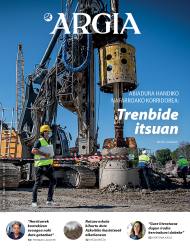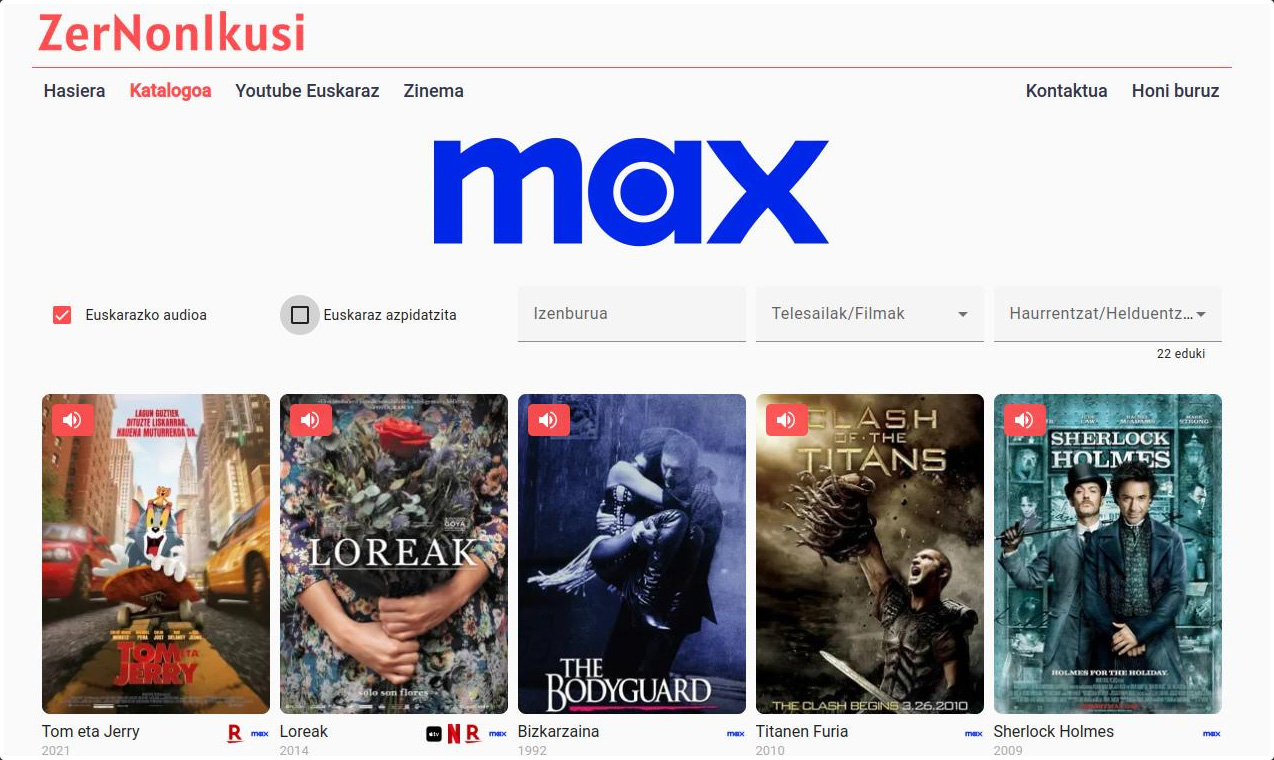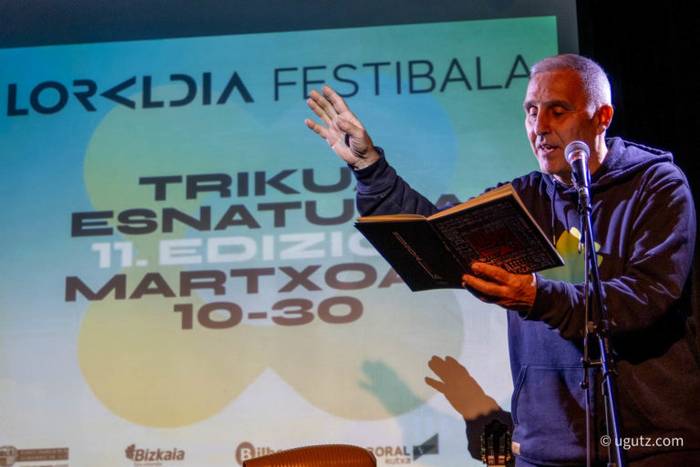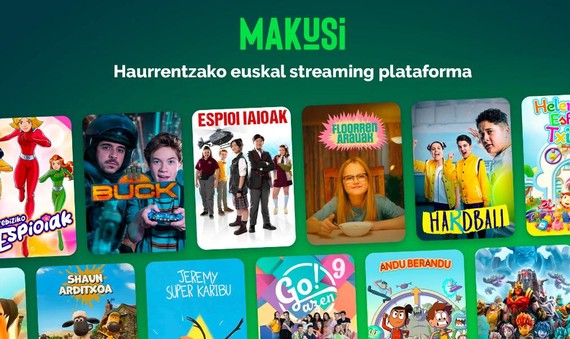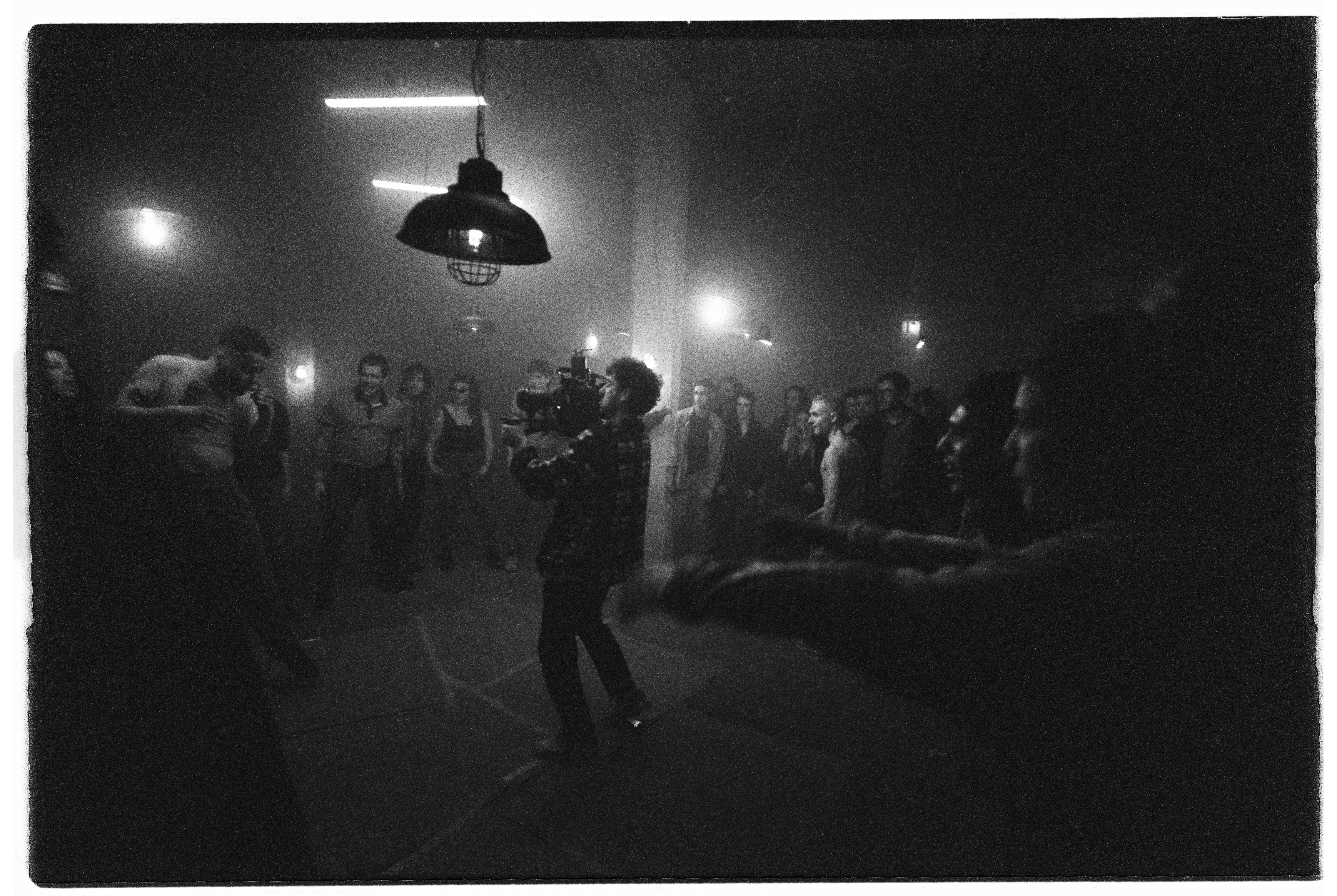Small progress
- When they went to create a Basque television, they met the needs of presenters, journalists, writers, cameras and staff who would occupy positions. But another need emerged: movies or series to consume in Basque. From scratch their realization was expensive, but there were other ways to do it: dubbing. And so Tinko Euskara Elkartea emerged, among others.
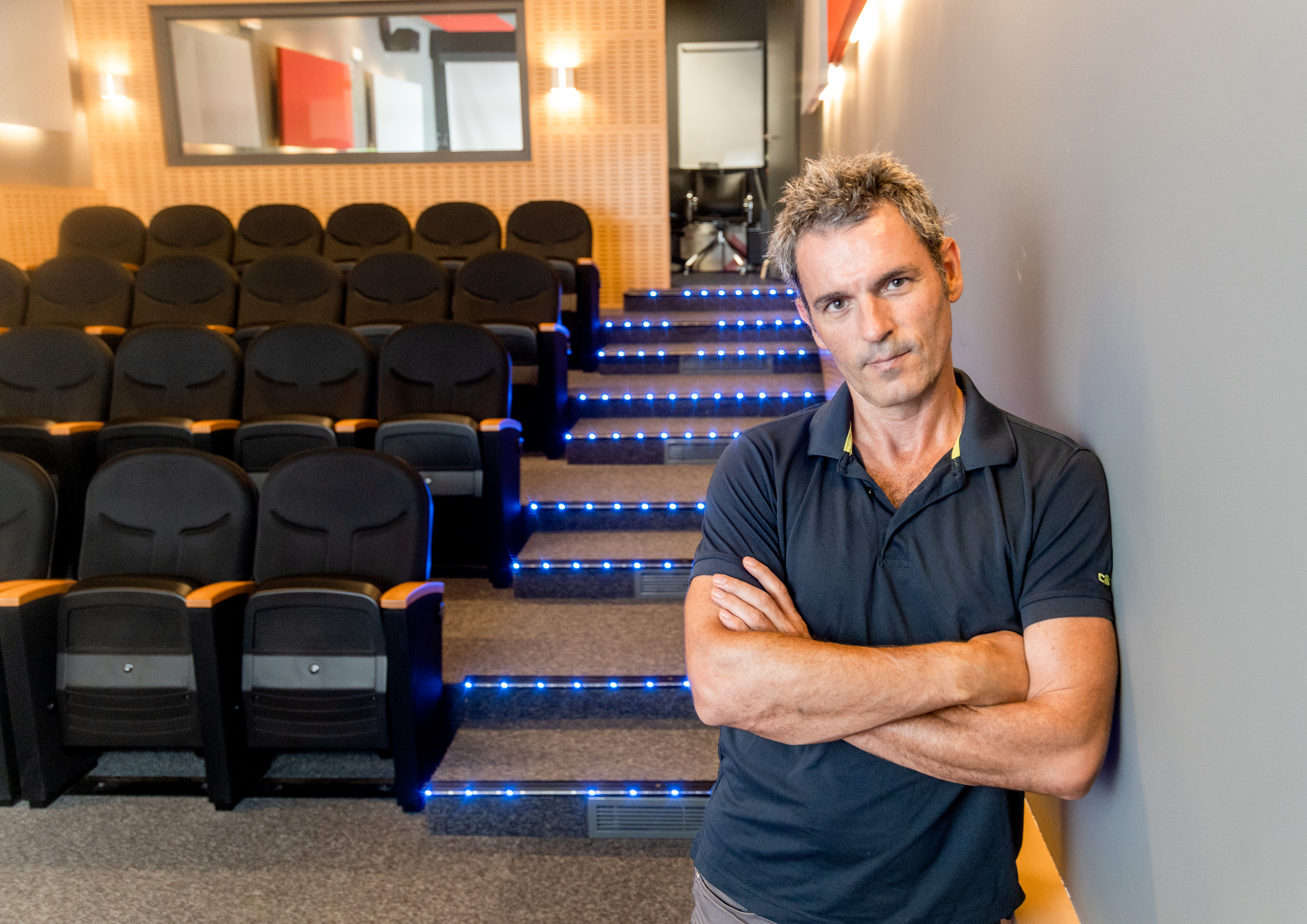
Tinko Euskara Elkartea has worked for many years on dubbing and offering films in Basque. For many years, María Galarraga was the first dubbing machine in Euskera. When the association was 20 years old zinea.eus, she conducted an interview with the daughter Izaskun Arandia. As explained in the report, Tinko had already translated 100 films, broadcast 5,000 performances and counted 750,000 viewers.
Anniversary
On the 25th anniversary Galarraga offered an interview to the middle Berria. He said that the last 25 years had left him “the joy of having accomplished”. However, the fulfilment of all the objectives of the partnership was still unfeasible for one main reason: “At one point the sector was also pretty bad, and there some saw a source of income, and people came in that didn’t care about Euskera in the calls, which struck everything,” Galarraga said.
Iñigo Arandia is the son of Galarraga and is also in Tinko Euskara Elkartea. Next 2023 the partnership will be 30 years old and the above figures have increased considerably, according to Arandia: They have opened about 120 films and have had over 2,000,000 viewers. Besides making films available to schools, they also offer in-room sessions. Arandia says that the experience they offer for children is very special because for many it is the first time they go to the movies with them.
The films in their collection are usually European and broadcast with teaching material. Because they direct movies to education. They try to make films attractive and enjoyable, but always with concrete values: the film must be a feminist, inclusive and egalitarian vision. The films and teaching materials offered to teachers are prepared for pupils in Child Education, Primary Education and Compulsory Secondary Education.
“The experience we offer for children is very special, for many it is the first time they go to the movies”, Iñigo Arandia, Tinko elkartea
The Tinko company itself used to translate four or five films a year, thanks to the financial support of the Basque Government. However, in the period 2009-2010, the subsidies were transferred to Zineuskadi and lost that economic aid. Since then, Zineuskadi decides which film will be translated into the Basque. If Tinko likes a projection translated into Euskera, the dubbing comes in contact with the assigned dealer for the opening license. In addition, Tinko translates one or two films a year (Tess and Nire Zirkua, for example). Otherwise, they get films from local distributors.
Projections of pedagogical and audiovisual value suitable for children are working. During the selection of the film, the association contacts the distributor or producer. Depending on the license obtained to distribute the projection, the films are distributed for more than one year until the end of the license.
Throughout the course, after seeing the films in the centers, Tinko makes a questionnaire to the teachers to know how the organization has been, the didactic material… To gradually improve their service, “evolving”, according to Arandia. In the previous course, 300 responses were received.
“Pandemic hit us hard, we lost 25,000 spectators,” Iñigo Arandia, Association Tinko
In pandemic and without pandemic, films in Basque
The COVID-19 epidemic began to reach us by mid-2020. Iñigo Arandia estimates that Tinko Euskara Elkartea lost nearly 25,000 viewers. “Pandemic hit us hard,” he says. The epidemic has affected many schools and their clients. In 2021, the online offer saved the course. Then Maria Galarraga explained to Berria: “Since the creation of Tinko Euskara Elkartea we have had to overcome many obstacles. This year, inevitably, we have stopped the project to the Euskera Cinemas and adapted us to the new times, but the objective remains the same: May the children of Euskal Herria watch the films in Basque. Cinema in room or at home.”
The next course also plans to advance and will feature six films: For E.I. students. Grufaloa eta Harri Zopa, for those 1-2-3 of Primary Adventure in Prehistory and Standing! and for the 4-5-6 FP My Circus and Elkano, the first world tour.
Adding and joining
Bieuse is the Association of Basque Dusters, which, besides working on dubbing, demands decent working conditions for the dubbing. This cooperative consists of 52 bends, actors, etc. of the Basque Country. They double the audiovisual media they have and, in addition to doubling them for Tinko and other companies, hope that they will soon start working for foreign companies. Bieuse is the largest group of bender working in Basque. Xabier Alkiza is part of this big group.
Alkiza completed a short history of working conditions in Basque in the interview given to ARGIA in 2020. Gorka Bereziartua collected this: “In the 1980s, with the beginning of ETB, a state agreement was in force regulating the work of duplicators, which was interrupted by the transfer of competencies to the autonomous communities”. Add the words of Alkiza below: “There it all started at ETB. Not only in ETB, but almost the entire state. There was a lot of work in the centres, in Madrid and in Barcelona, what was stated in that agreement was maintained. But in the rest, the free bar was placed. As here, in the Mediterranean area, where there were autonomic televisions, precarization and intrusion were promoted from public institutions”. After several meetings in 1990, it was decided to gradually reduce dubbing since 2000.
Because of the lack of production in recent years, there now seems to be an explosion because there are more than two productions
Once again, Alkiza stressed in the interview given to ARGIA the lack of production that can be consumed in Euskera, as many believe that it is being exploited lately, but not him. Alkiza considers that in recent years there has been virtually no consumption of Basque. Therefore, now that more than two productions have emerged, it seems that it is giving rise to a tremendous explosion.
The Basque bends have been working in a precarious situation for years, but they have been able to carry out different projections.
Progressing slowly
Iñigo Arandia walked the table with Netflix Euskaraz and Disney+ Euskaraz in Durango, who invited him to be part of Euskaraz Apantrillas. Now, the Bieuse and Tinko Euskara associations complete the popular initiative Apps Euskaraz. They are part of the Netflix Euskaraz and Disney+ Euskaraz project, among others.

The initiative claims the presence of the Basque Country. It does not require the Basque translation of the concrete projections, but the presence of the Basque in the streaming platforms. They are not concrete processes that are associated with a given audiovisual. This has been pointed out by Alex Aginagalde, who is part of the initiative: “Our demand and fight is general, pressing institutions and platforms on the networks and through formal letters we make general demands and demands, demanding that they respect the rights of the Basques.”
There have been many fluctuations in the audiovisual industry in Euskera, especially those that have been doubled to Euskera, and the problems are increasing for a people divided between two states. In Spain, progress has been made in the acquisition of Basque content on streaming platforms. In France, however, they are starting to make content available in Basque this summer. Despite this, Apps Euskaraz will not cease and in September will hold meetings with the institutions of the continental Basque Country.
The audiovisual sector in Basque has a growing trend. Little by little there is more audiovisual that can be consumed in Basque. It is a small step forward, but after all a step forward.









